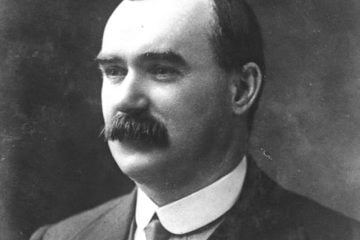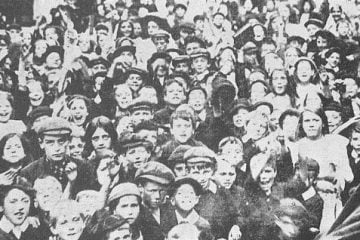It’s often argued that socialism couldn’t work as, if everyone is “paid the same”, there would be no incentive to “work hard”.
This argument is wrong on many levels. Firstly, it assumes that those who are paid the most under capitalism work the “hardest”. In fact the wealth of the super-rich is not “earned” from their work but through their ownership of the productive forces. This allows them to appropriate the unpaid labour of billions of working class people around the world.
Many of these billionaires do no productive work at all but pay others to manage their companies and finances. An Oxfam study into the wealth of the world’s billionaires, found that one third was inherited, whilst 43% can be linked to corruption.
Whilst these parasites “work hard” on their super yachts, billions are forced to work 50 or 60 hours or more a week, doing backbreaking labour in return for poverty wages.
Such “hard work” is not encouraged by the fact that different layers of the working class receive higher wages. It results from the necessity to accept any job, in order to be able to put food on the table, pay the rent and bills. The alternative is to join the ranks of the unemployed, which for many means hunger and homelessness.
Secondly, the argument that under socialism “we will all be paid the same” is false.
Our ultimate aim is a communist society, where everybody can take freely according to their needs. However Marxists are not utopians, we do not expect that this will be possible overnight upon the working class taking power. It will require a transitional period (usually referred to as “socialism”), during which some of the features of capitalism will be unavoidable.
As Marx noted:
“What we have to deal with here is a communist society, not as it has developed on its own foundations, but, on the contrary, just as it emerges from capitalist society; which is thus in every respect, economically, morally, and intellectually, still stamped with the birthmarks of the old society from whose womb it emerges.”
By taking over the commanding heights of the economy and planning production according to need, it will be possible to make a number of rapid improvements to the majority of people’s lives. For instance, it would be feasible to quickly end unemployment, by reducing the working week, with no loss of pay.
In the same way that access to healthcare in Britain is socialised through the NHS, it would also be possible to provide other goods and services such as energy, internet, transport, and food for free. This is since we produce, or could produce more than enough of these things to go around. This would have the same effect as a massive wage increase for the vast bulk of society.
Yet so long as scarcity exists, certain items would still require distribution through money, i.e. wage payment would still be necessary. It is utopian to think that in the early period following a socialist revolution, everybody would accept being paid the same given their different needs, responsibilities and workloads, or allow those who don’t work but could, to take from society’s wealth.
However, unlike under capitalism, where in many companies the ratio between the lowest and highest paid is astronomical (FTSE 100 company bosses “earn” on average 386 times more than the living wage), under socialism we would significantly reduce this disparity. In the early years of the USSR, the ratio between the highest and lowest paid was officially 1:4, and even this was considered high.
With workers’ control, a massive shortening of the working week, along with the abolition of the divide between mental and manual labour, our conceptions of “work” would be transformed. From a tiring burden, necessary to pay the bills whilst making some billionaire richer, it would become a source of enrichment, or “life’s prime want”.
With the development of the productive forces to such a point where we could easily produce enough of everything for people to take freely, the desire to be “paid” more than others would become meaningless, as money itself would become unnecessary. Far from universal laziness, humanity could finally achieve its full potential.




1 Comment
Silesian Textile Worker · December 18, 2018 at 3:36 am
The diligent people in capitalism are only slaves who employ labor. The so-called hard work is only to create bright prospects for capitalists, while the socialist people become the real masters of labor, and then the hard work is the people themselves. Here the laborer can show his talent, he can stand up a little, he can raise his eyebrows and breathe, and he can feel that he is human. They have worked for others and exploiters for thousands of years. Now for the first time, they are likely to work for themselves, making use of all the new technological and cultural achievements Lai